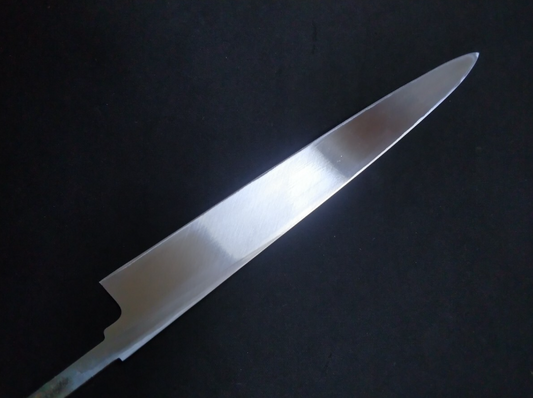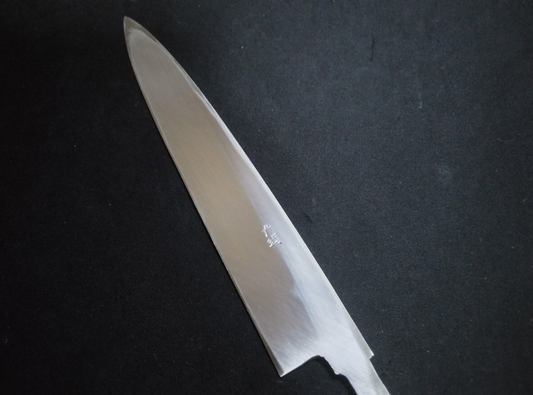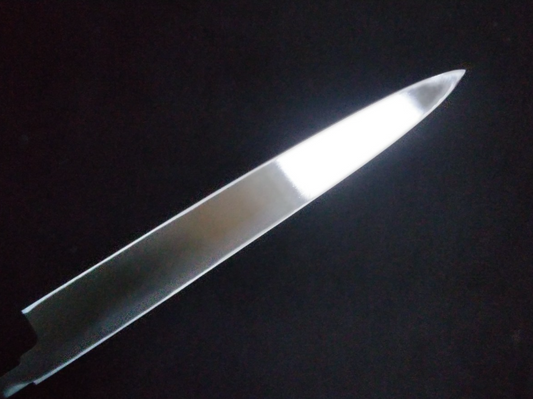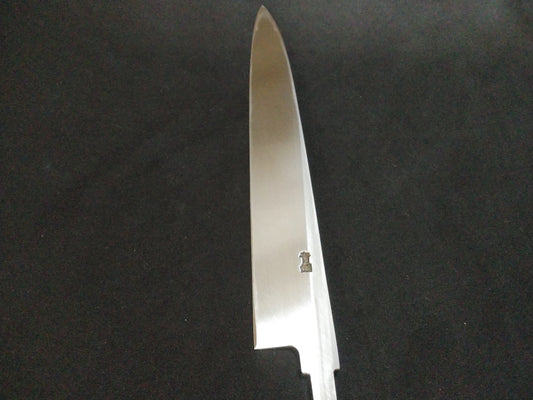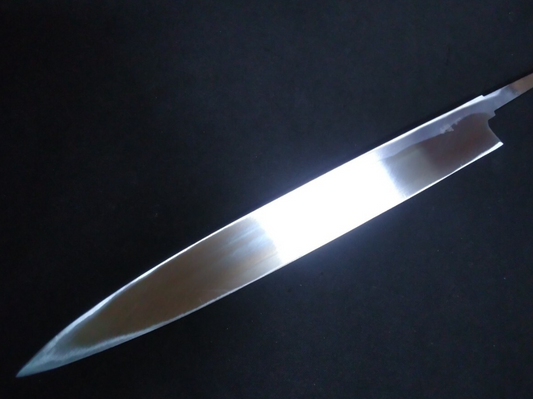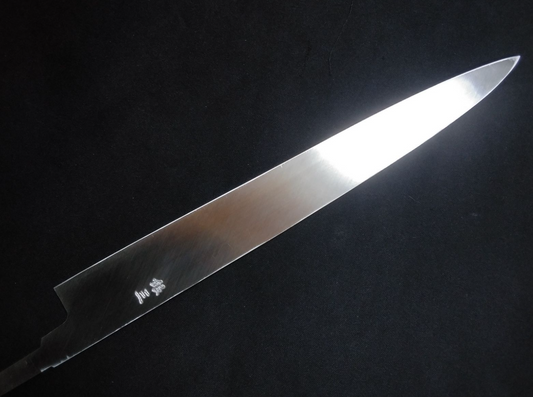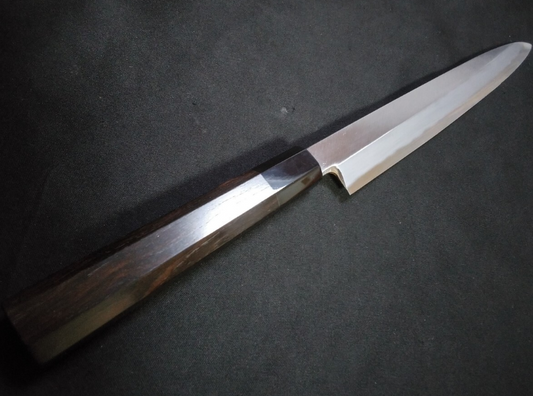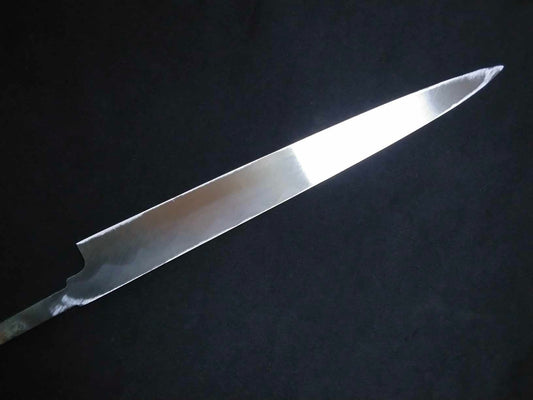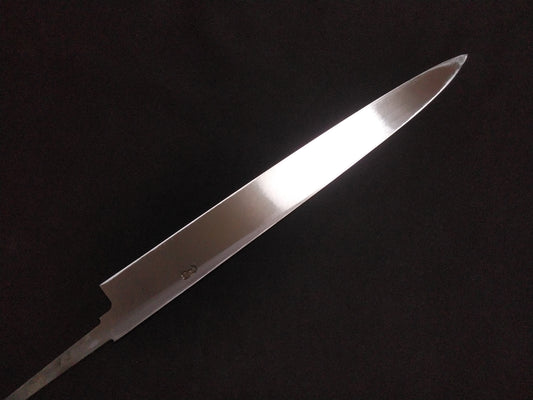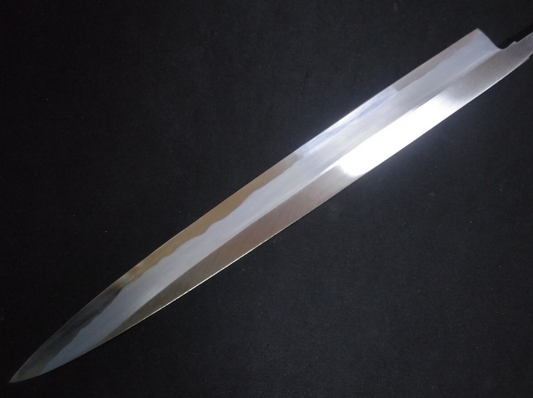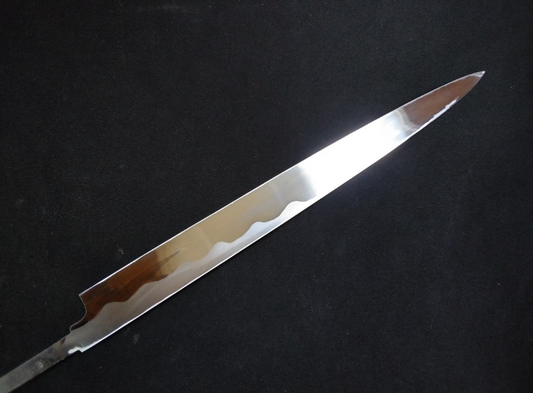
Yanagiba
-
Graceful like a sword. Sharp like no other.
The Yanagiba — Japan’s iconic sashimi knife — glides through fish in a single, fluid motion, preserving its texture, flavor, and beauty.
Beloved by master sushi chefs, it is more than a knife — it is a living tradition, forged by skilled hands and ready to inspire yours. -
Yanagiba Japanese Knife Collection
-

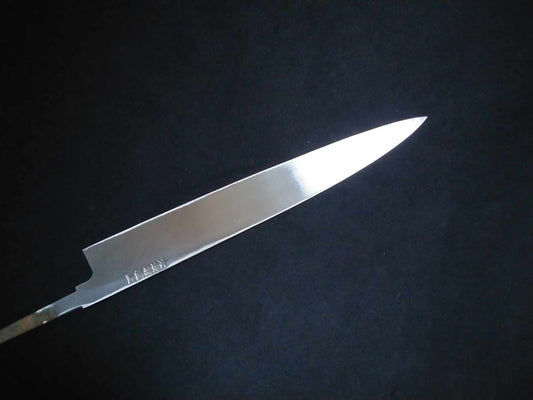 Sold out
Sold outWhite Steel #2 Yanagiba 210mm
Regular price $260.00 CADRegular priceUnit price / per$0.00 CADSale price $260.00 CADSold out -
White Steel #2 Yanagiba 240mm-Kido Finishing
Regular price $270.00 CADRegular priceUnit price / per -
Blue Steel #2 Yanagiba 210mm- Kido Finishing
Regular price $300.00 CADRegular priceUnit price / per$0.00 CADSale price $300.00 CAD -
White Steel #2 Yanagiba 270mm-Kido Finishing
Regular price $310.00 CADRegular priceUnit price / per -
Blue Steel #2 Yanagiba 240mm-Mirror Polished(one side)
Regular price $330.00 CADRegular priceUnit price / per$0.00 CADSale price $330.00 CAD -
Blue Steel #2 Yanagiba 270mm- Kido Finishing
Regular price $350.00 CADRegular priceUnit price / per$0.00 CADSale price $350.00 CAD -
Ginsan Yanagiba 240mm -Mirror Polished(one side)
Regular price $370.00 CADRegular priceUnit price / per -

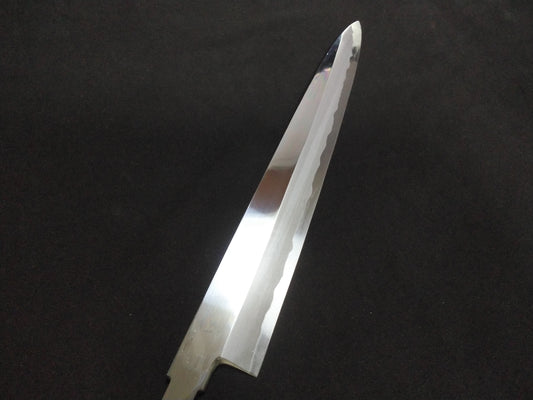 Sold out
Sold outWhite Steel #2 Yanagiba 330mm
Regular price $380.00 CADRegular priceUnit price / per$380.00 CADSale price $380.00 CADSold out -
White Steel #1 Yanagiba 270mm-Kido Finishing
Regular price $380.00 CADRegular priceUnit price / per -
Blue Steel #2 Yanagiba 270mm- Mirror Polished(one side)
Regular price $385.00 CADRegular priceUnit price / per$0.00 CADSale price $385.00 CADSold out -
White Steel #2 Yanagiba 330mm-Mirror Polished(both sides)
Regular price $387.00 CADRegular priceUnit price / per$0.00 CADSale price $387.00 CADSold out -

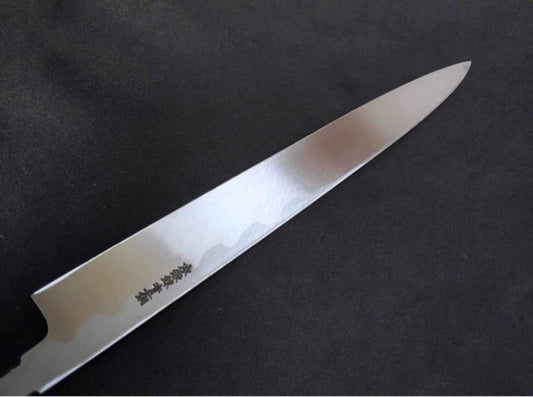 Sold out
Sold outBlue Steel #1 Yanagiba 270mm
Regular price $393.00 CADRegular priceUnit price / per -
Blue Steel #2 Yanagiba 300mm-Mirror Polished(one side)
Regular price $407.00 CADRegular priceUnit price / per$397.00 CADSale price $407.00 CADSold out -
White Steel #2 Yanagiba 300mm-Mirror Polished(one side)
Regular price $434.00 CADRegular priceUnit price / per$0.00 CADSale price $434.00 CAD -
Blue Steel #2 Yanagiba 360mm- Kido Finishing
Regular price $450.00 CADRegular priceUnit price / per$0.00 CADSale price $450.00 CAD -
Blue Steel #2 Yanagiba 300mm -Mirror Polished(both sides)
Regular price $460.00 CADRegular priceUnit price / per$460.00 CADSale price $460.00 CADSold out
KIREAJI's Three Promises to You
-

1. Forged in the Legacy of Sakai
From Sakai City—Japan’s renowned birthplace of professional kitchen knives—each blade is crafted by master artisans with over six centuries of tradition. Perfectly balanced, enduringly sharp, and exquisitely finished, every cut carries the soul of true craftsmanship.
-

2. Thoughtful Care for Everyday Use
Every knife includes a hand-fitted magnolia saya for safe storage. Upon request, we offer a complimentary Honbazuke final hand sharpening—giving you a precise, ready-to-use edge from day one.
-

3. A Partnership for a Lifetime
A KIREAJI knife is more than a tool—it is a lifelong companion. With our bespoke paid aftercare services, we preserve its edge and beauty, ensuring it remains as precise and dependable as the day it first met your hand.
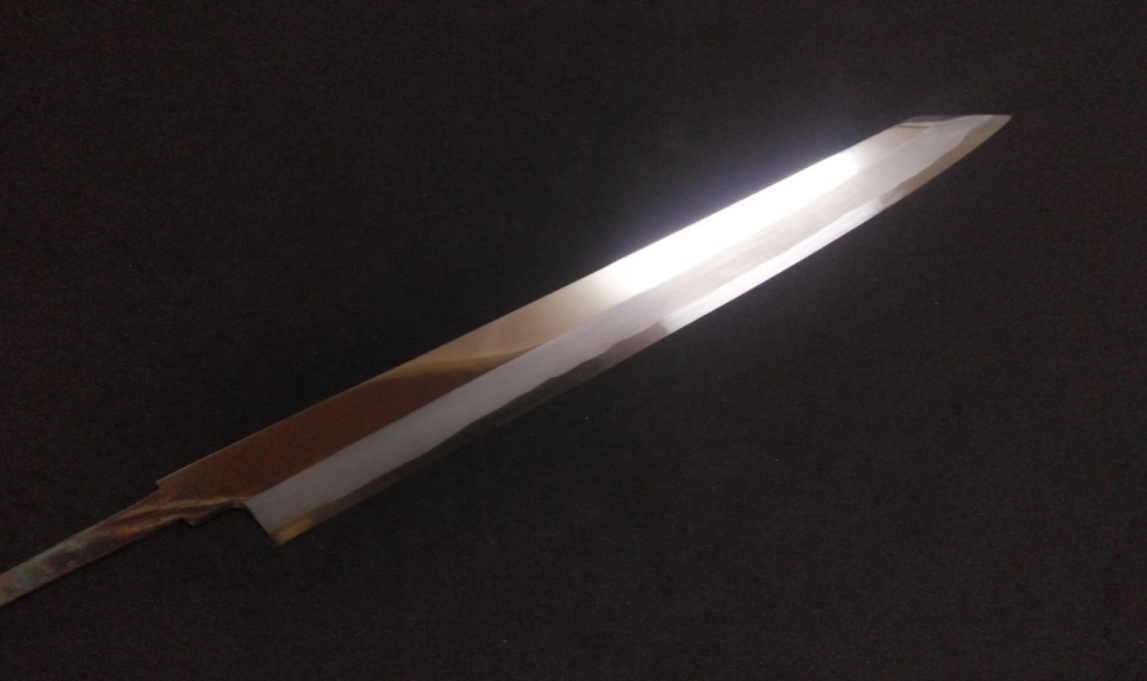
Why Many Product Photos Show Only the Blade
At KIREAJI, every knife is made to order in Sakai, Japan. Photos show the blade before the handle is attached, allowing artisans to perfect the balance and edge for your specific order. Your knife arrives fully finished — tailored just for you.

Global Delivery from Sakai
Across the world, discerning cooks seek authentic Japanese knives from Sakai — Japan’s legendary knife-making city with over 600 years of tradition.
At KIREAJI, we work alongside master artisans in Sakai to fulfill that desire, shipping genuine handcrafted knives directly from the workshop to kitchens worldwide.
-
Yanagiba
-
The Sashimi Blade That Embodies Japan’s Culinary Art
In the heart of Sakai, Japan — a city with over 600 years of blade-making tradition — the Yanagiba has long been a trusted companion of sushi and sashimi masters. Its design is the result of generations of craftsmanship, refined to serve a single purpose: to transform fresh fish into works of edible art.
-
Whether you are a professional chef or a passionate home cook, understanding the heritage and design behind the Yanagiba will deepen your connection to this legendary knife — and to the Japanese culinary philosophy it represents.
-

-
Two Defining Features of the Yanagiba
-
1. Long Blade for Seamless Cuts
The Yanagiba’s extra-long blade allows chefs to slice sashimi in a single, smooth motion, avoiding any sawing that could damage the delicate flesh. This technique preserves the fish’s natural texture and umami, producing sashimi that looks as refined as it tastes. In traditional sushi bars, the elegance of each slice is as important as its flavor — a principle the Yanagiba was made to uphold.
-
2. Single-Bevel Edge for Precision
Crafted with a single-bevel edge, the Yanagiba delivers a level of sharpness and control unmatched by double-beveled knives. The flat “ura” (back) helps the blade glide effortlessly through fish, releasing each slice cleanly. For sushi chefs, this means precision cuts that enhance presentation, mouthfeel, and flavor, honoring both the ingredient and the diner.
-
More Than a Tool — A Cultural Symbol
For Japanese chefs, the Yanagiba is more than a knife; it is a symbol of respect for the ingredient and dedication to craft. Many master sushi chefs dedicate years to perfecting their slicing technique, often under the guidance of seasoned mentors. In the hands of a skilled artisan, the Yanagiba becomes an extension of the chef’s will, capable of elevating even the simplest fish into a culinary masterpiece.
Owning and using a Yanagiba is an invitation to step into this tradition — to slow down, focus on every movement, and appreciate the artistry in every cut.
Why the Yanagiba Perfects the Art of Slicing
-

The Yanagiba achieves what no other knife can: a single, unbroken pull cut that preserves the fish’s natural texture and umami. With its long blade and single-bevel geometry, it lets the chef glide effortlessly through sashimi, releasing each slice without tearing the flesh. In Japanese cuisine, this precision is more than technique—it reflects a deep respect for the ingredient and the belief that craftsmanship begins with the purity of the cut.
-
Why the Japanese “Pull” When Slicing Sashimi — A Philosophy in Motion
-
"Why do the Japanese slice sashimi by pulling the knife, rather than pushing or sawing?"
The answer goes far beyond technique. It reflects a deep-rooted philosophy—a respect for the ingredient, a pursuit of beauty, and the soul of craftsmanship. -
The Precision of the “Pull Cut”
Japanese sashimi knives—yanagiba, fuguhiki, and others—are unlike any ordinary kitchen knife.
Long, narrow, and single-beveled, they are designed specifically for the “pull cut”, a movement where the knife is drawn toward the body in a smooth, single motion using the full length of the blade.This method allows the chef to slice cleanly through the fish without damaging its delicate structure. A swift pull results in a clean cut, while sawing or pressing can easily crush the fibers.
-

Cutting Changes the Taste
The most crucial factor in delicious sashimi is not breaking the cells.
Fish flesh is incredibly delicate and full of moisture and umami. When improperly cut—by pushing or sawing—the drip (flavorful liquid) escapes, and the texture and appearance suffer.In contrast, a smooth pull cut leaves the surface intact, preserving both the natural flavor and the clean, glistening look of fresh sashimi.
This is a clear reflection of the Japanese culinary philosophy: enhance the natural quality of the ingredient rather than overpower it. -
Aesthetic Tools for a Purposeful Technique
The length and thinness of the yanagiba are not for show. They allow the chef to use the knife’s own weight and length, requiring no excess force—just a quiet, purposeful draw.
Here, efficiency meets elegance. The pull cut is not only functional but deeply expressive.
In a single stroke, the chef reveals both his skill and his mindset.This is not just cooking—it is a ritual of presence, care, and respect, akin to a tea ceremony or calligraphy.
-

A Cultural Gesture in a Slice
Japanese cuisine emphasizes not bold stimulation, but subtle, silent impact.
It invites reflection:
“Where did this fish swim? What kind of life did it live?”
“How can I honor its journey in my preparation?”That’s why the cut matters. A single, graceful pull with the yanagiba can convey emotion, precision, and reverence—all in one fluid gesture. -
Why the Pull Cut Matters
To “pull” when slicing sashimi is to achieve the best possible appearance, texture, and flavor—but it’s also an act of cultural expression.
It reflects the Japanese values of harmony, respect, and refinement.
If you ever hold a yanagiba in your hands, try to feel the spirit behind it—a quiet mastery that speaks volumes without words.
The Japanese Pull Cut: A Philosophy of Respect, Precision, and Beauty
-

The pull cut preserves texture, flavor, and visual purity, expressing a uniquely Japanese harmony between technique and philosophy.
-
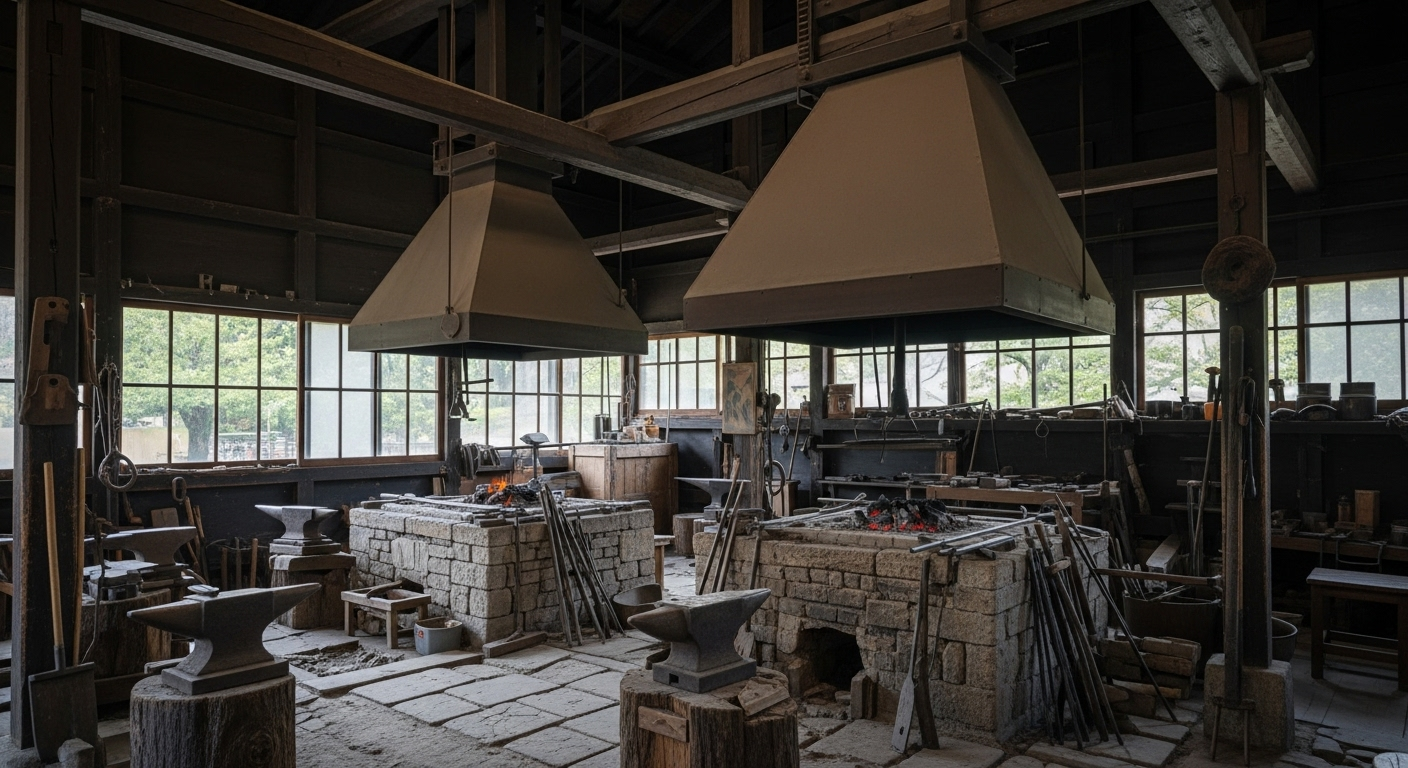
FAQ About Yanagiba

Q1. What is a Yanagiba knife?
The Yanagiba is a traditional Japanese knife designed specifically for slicing raw fish in a single, smooth pulling motion. It is the tool of choice for preparing sashimi and sushi, allowing chefs to achieve clean cuts that preserve the delicate texture, flavor, and appearance of the fish.
Q2. What are the key features of a Yanagiba?
A Yanagiba has a long, slender blade—typically between 240mm and 330mm—allowing the user to slice an entire fillet in one stroke. It is single-beveled, sharpened only on one side, which enables thin, precise cuts. The pointed tip allows for delicate trimming and detailed work. Most are crafted from high-carbon steels such as White Steel (Shirogami) or Blue Steel (Aogami), ensuring exceptional sharpness. These features together help chefs produce flawless cuts that maintain both the flavor and visual elegance of the fish.
Q3. Why is the Yanagiba essential for sashimi?
In Japanese cuisine, the visual presentation and texture of sashimi are as important as flavor. The Yanagiba enables slicing in a single continuous motion without sawing, resulting in glossy, smooth surfaces that look elegant, minimize cellular damage, and preserve umami. By maintaining uniform thickness, it also ensures a refined and consistent presentation, making it indispensable for authentic sashimi preparation.
Q4. How do I choose the right size of Yanagiba?
The ideal size depends on your experience and kitchen setup. Beginners often start with 240mm, while intermediate users prefer 270mm, and advanced chefs may use 300mm or longer. In home kitchens, 240–270mm is common, whereas professional chefs typically select 270–330mm. It is also important to ensure that your cutting board and workspace can accommodate the length of the blade.
Q5. Can I use a Yanagiba to slice meat?
Yes, though with limitations. A Yanagiba can be used to make thin slices of boneless meats such as beef carpaccio. However, it is not suitable for cutting through bone, sinew, or hard vegetables. For general meat preparation, a double-beveled slicer such as a Sujihiki is more practical.
Q6. What is the difference between a Yanagiba and a Fuguhiki?
The Fuguhiki is a specialized variation of the Yanagiba, primarily used for slicing fugu (pufferfish). It has a thinner, more flexible blade, allowing it to produce extremely fine, translucent slices. While the Yanagiba is more versatile and used for general sashimi preparation, the Fuguhiki excels in delicate, specialty work.

A Razor-Sharp Knife and the Birth of Sashimi
Sashimi is more than raw fish—it is tradition, art, and precision, a cuisine that could only have emerged in Japan. At its heart lies the Japanese knife, whose ultra-sharp edge made this culinary culture possible. This article explores how the evolution of these blades shaped sashimi, and why precision cutting remains its very foundation.
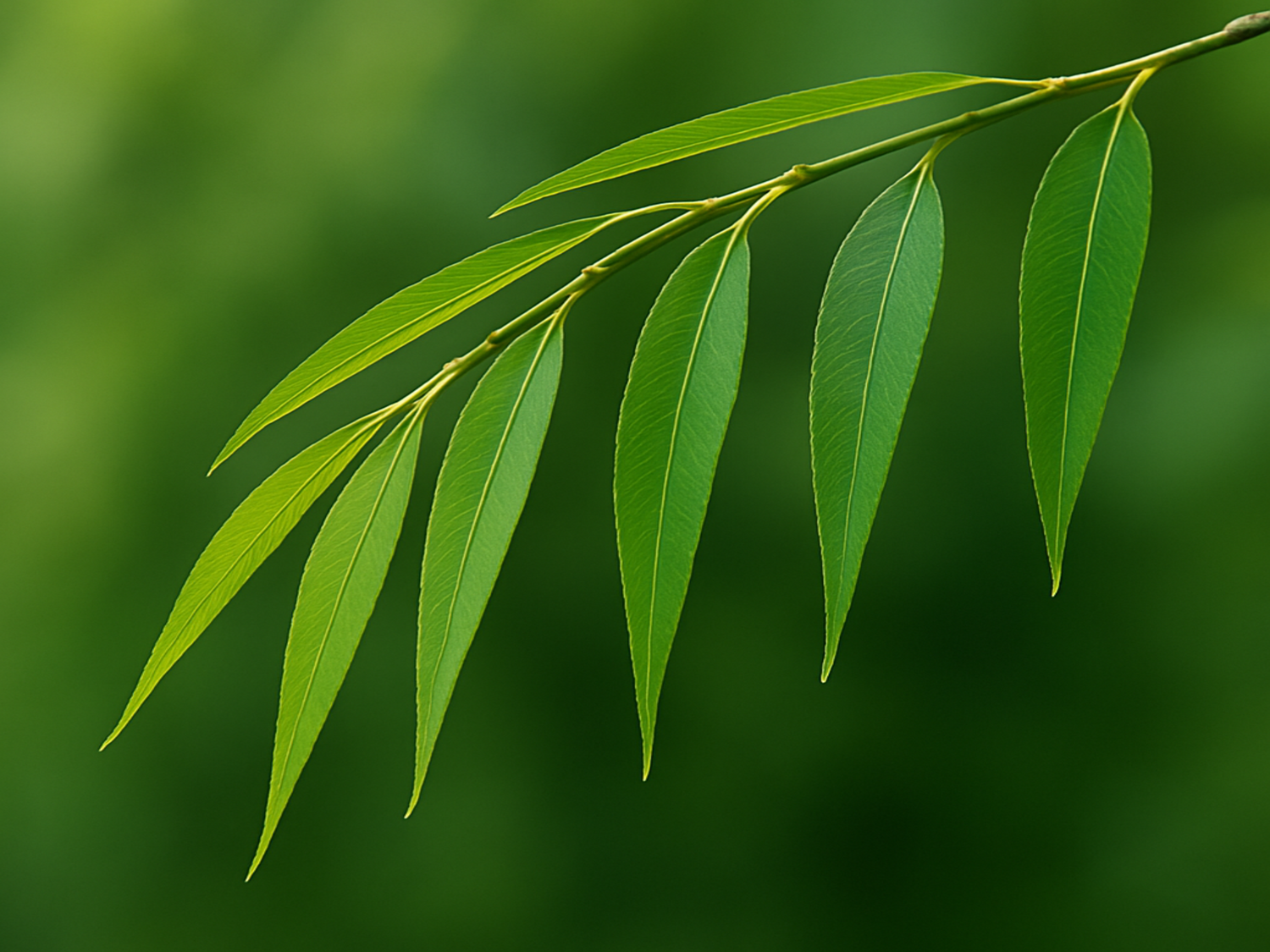
What is a Japanese fish knife called?
Learn about the Yanagiba, Japan's iconic fish knife, and how its design ensures precision in sushi and sashimi preparation. Discover its unique features, care tips, and why it's a must-have for any seafood enthusiast.
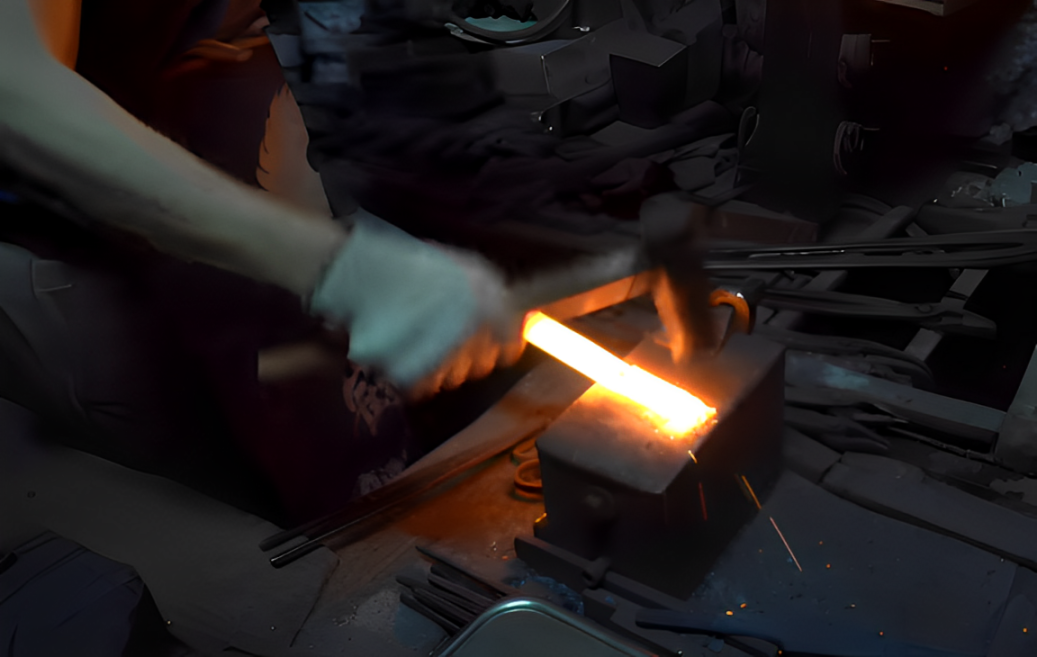
The Soul of Craftsmanship
-
Sashimi Perfection — Unlocking Flavor with the Yanagiba Knife
Slicing sashimi is more than cooking—it is an art form. Every cut must honor the natural beauty of the fish while enhancing its flavor. To achieve this, chefs have long relied on the yanagiba knife, a single-edged blade perfected through centuries of Japanese craftsmanship.
-
Unlike double-edged knives, the single bevel of the yanagiba allows for a smooth, gliding cut that preserves the delicate fibers of the fish. The result is sashimi with a flawless surface, a brilliant sheen, and a texture that melts in the mouth. Each slice is not simply food preparation—it is the elevation of ingredients into culinary art.
-
What makes the yanagiba truly exceptional is its ability to unlock flavor. By pulling the blade through in one continuous motion, chefs avoid crushing the flesh, allowing the fish’s natural umami and freshness to shine. This precision is why chefs say: “The yanagiba doesn’t just cut—it reveals.”
-
Every yanagiba is crafted with intent. Its long, slender form was refined over generations to meet the exacting demands of Japanese cuisine. Forged in Sakai and other knife-making centers, each blade embodies not only sharpness and balance but also the soul of the craftsman who shaped it.
-
For chefs and passionate home cooks alike, using a yanagiba is more than technique—it is a dialogue between knife, ingredient, and hand. Each slice is an act of respect—for the fish, for tradition, and for the artistry of Japanese cuisine.
How Japanese Knives Are Made: The Sakai Tradition
VIDEO PROVIDED: JAPAN TRADITIONAL CRAFTS AOYAMA SQUARE (YOUTUBE)
-
Sakai Forged Blades — Six Centuries of Unrivaled Craftsmanship
Loved by chefs around the world and trusted by 98% of Japan’s top culinary professionals, Sakai knives are more than tools—they are the living legacy of over 600 years of master craftsmanship.
-
At KIREAJI, we work directly with the Shiroyama Knife Workshop in Sakai, Japan, ensuring every blade is hand-forged, finished to perfection, and shipped straight from the workshop to kitchens across the globe. No middlemen. No mass production. Only authentic, artisan-made knives, crafted to elevate your cooking for a lifetime.




